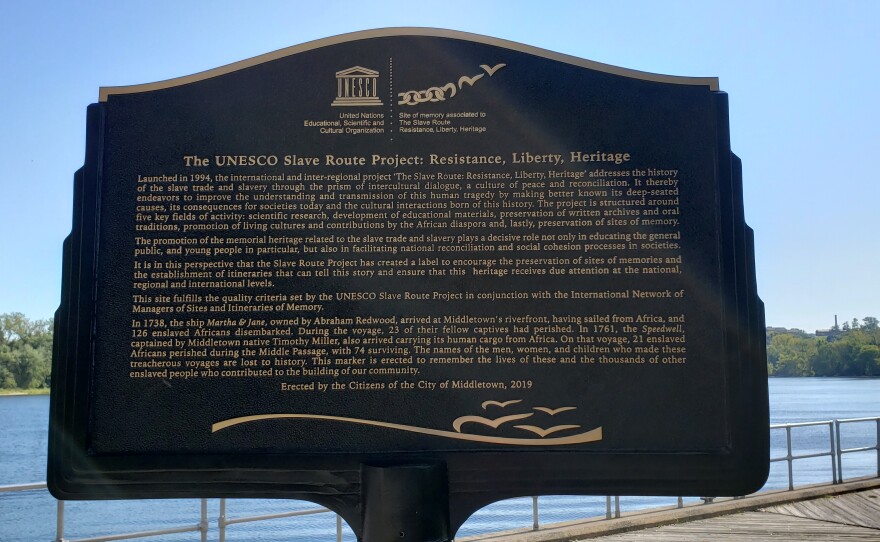Middletown today is known for its vibrant main street and the scenic grounds of Wesleyan University.
But the city began as a trading port on the Connecticut River, and from its founding, much of the wealth that came into that port was tied to the transatlantic slave trade. This hour, we hear about a new UNESCO memorial that has brought recognition to that city’s role in slavery.
We also learn about members of a historic African American family in that city who were at the forefront of fighting slavery. The Bemans were prominent abolitionists and leaders in the Middletown’s free black community in the 19th century.
Some residents today are hoping to see a new public school bear the name of that family. Are you a Middletown resident? How do you think your city should approach its history?
Join the conversation on Facebook and Twitter.
GUESTS:
- Debby Shapiro - Municipal historian of Middletown
- Demetrius Eudell - Professor of U.S. History at Wesleyan University and Dean of the Social Sciences
- Mardi Loman - One of the Cross Street African Methodist Episcopal (AME) Zion Church historians; retired high school teacher
- Jesse Nasta - Historian of 19th century African-American history who is working on a book on the Beman family’s history; he is a visiting assistant professor of African American Studies at Wesleyan University in Middletown
Chion Wolf contributed to this show.
Correction: Mardi Loman is a historian for the Cross Street African Methodist Episcopal (AME) Zion church, not the African Methodist Episcopal church.









